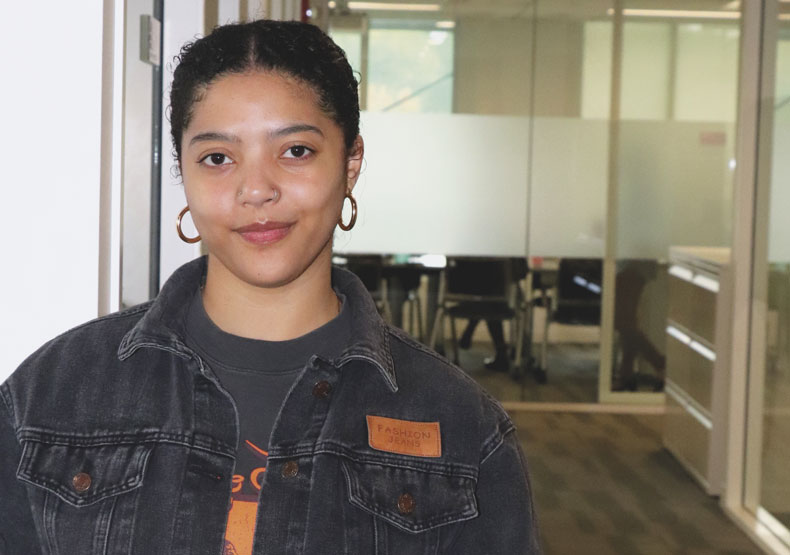Choosing School Psychology: Scholarship Recipient Uses Lived Experience to Aid Others

Ashley Herrera, Student, MA/CAGS in School Psychology
Ashley Herrera was seven years old when her family moved to Boston from the Dominican Republic. Out of necessity, she was tasked with caring for her two siblings and two cousins while her father and uncle got acclimated to living in a new country and finding work. When it came time for her first co-op experience as an undergraduate psychology student at Northeastern University, Herrera put working with children toward the bottom of her list and set her sights on positions in research or hospital settings. Upon her placement at Bright Horizons child-care center, the unimaginable occurred.
“On the first day, my arrival opened a door I had closed,” said Herrera, who quickly realized working with young people was where she needed to be. This experience, coupled with her next placement at the Baker School in Brookline (where one-third of the student population speaks English as a second language at home) showed her the way forward.
Herrera’s affiliation with Bottom Line, a nationwide nonprofit that partners with degree-seeking students of color from under-resourced communities to navigate the higher education process, served as her introduction to William James College. The first-year student in the School Psychology MA/CAGS program was recently awarded a scholarship from the Mental Health Service Professional (MHSP) Demonstration Grant Program—in recognition of her strong clinical skills, knowledge of evidence-based and inclusive practices, and interest in supporting underrepresented and underserved populations—aimed at supporting the growth and expansion of a diverse behavioral health workforce to deliver care to children and adolescents in high-need school districts across Massachusetts.
“I was a Boston Public Schools kid, who grew up in underserved neighborhoods, and I experienced first-hand the lack of resources and services,” said Herrera who recalls art, music, and physical education falling by the wayside during major budget cuts. When applying for scholarships to attend graduate school, she was surprised to learn about the widespread efforts at William James to help individuals from historically marginalized communities seek the resources needed to thrive. “I honestly didn't realize how involved William James was in helping students from underserved neighborhoods—something that I haven't seen anywhere else—so it was something that I really wanted to be part of,” said Herrera, who has been on both sides of the desk, so to speak. As part of her first-year practicum, she is shadowing the school psychologist at Chittick Elementary School in Mattapan and learning more about the role; as the year progresses, Hererra will begin to work more directly with students which includes conducting her own counseling sessions and completing student assessments.
“Public schools are trying to get back in the groove, and keep up with the services students need, but it’s not enough,” said Herrera of working with a growing immigrant, and by extension English language learner, population with whom she closely identifies: Not knowing a word of English upon her enrollment, Herrera was required to repeat second grade which further hindered her adjustment. The rising number of mental and behavioral health issues among school-aged kids, coupled with an ongoing need for prevention programming and mental health support, renders school psychologists more needed than ever in Herrera’s mind.
Before applying to graduate school, she was contemplating volunteer opportunities in the Dominican Republic as a means of addressing the growing number of young people struggling with mental health issues and an overall dearth of resources there. Since matriculating at William James, she’s experienced a change of heart: “For me, school psychology is a way to mix my two passions, for psychology and education, together,” said Herrera, who—after seeing things in a new light working within the public school system—plans to stay in Boston after earning her degree.
“While things are different than when I grew up—mostly due to COVID and children losing out on the connections that come from being in person—there are other things that haven’t changed, like the lack of resources for underserved populations, which is something I’m really interested in working to protect and restore.”
Topics/Tags
Follow William James College
Media Contact
- Katie O'Hare
- Senior Director of Marketing
- katie_ohare@williamjames.edu
- 617-564-9389
